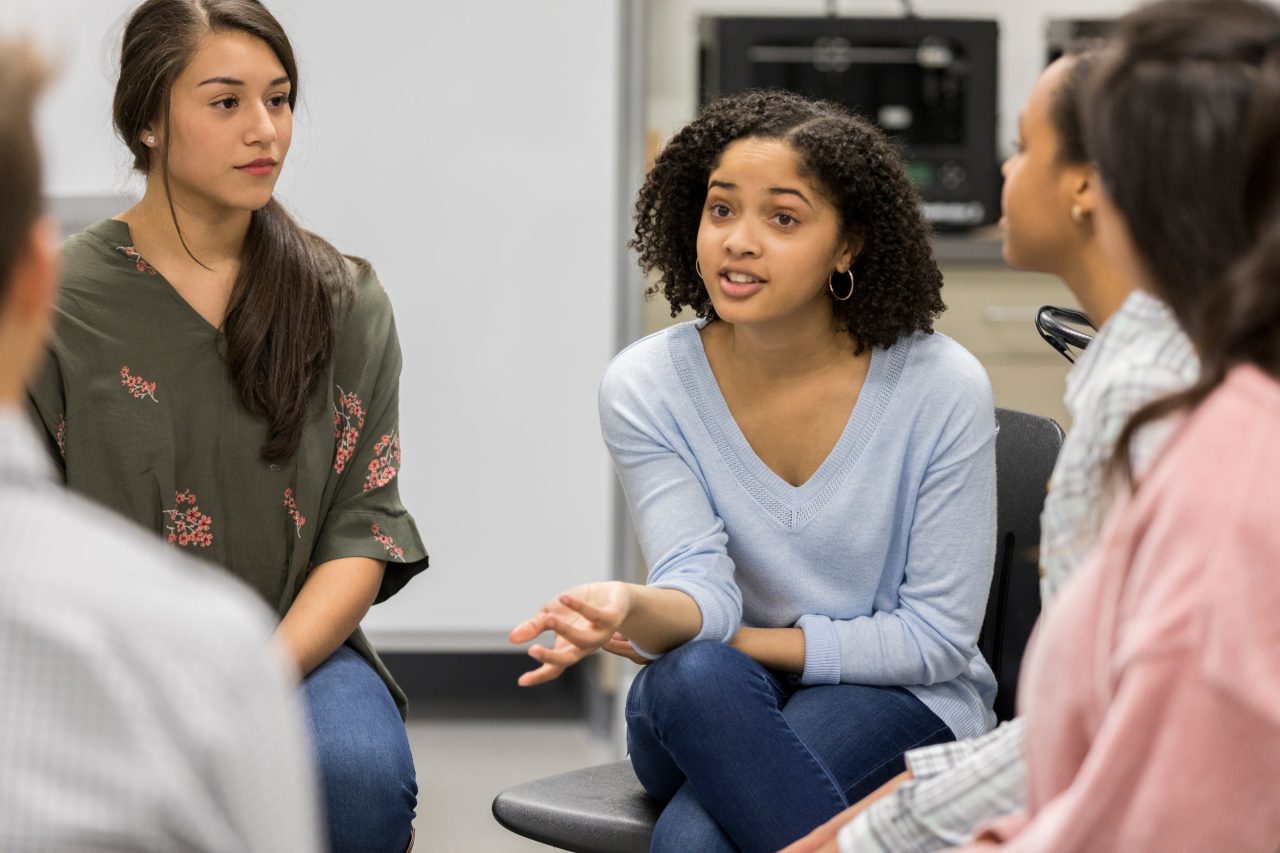The art of changing your mind
Making your mind up can be difficult, but why is it sometimes even harder to change our minds? Should you always stand up for what you believe in, or would it be smart to practice challenging your opinions? Why should you change your mind, and when should you do it?



Dame som sitter foran pcen og tenker

Tenåring snakker i en støttegruppe
Do you disagree?
If you are going to watch a TV series with friends, and you want to watch something different from them, you can certainly change your mind if the others make a good argument for it. But what if there are bigger things, things you are passionate about and think are important? How easy is it to change your mind then?

Jentegjeng som ser på film med pop corn

En gjeng tenåringer som sitter sammen i et friminutt

En gutt som prøver å få bussen til å stoppe

Barn som ligger på gulvet å tegner

Elever som gjør lekser sammen

En jente som hører på det venninnen har å fortelle
We must challenge each other!
We don’t always agree, but disagreement can be positive. Through respectful exchange and conversation, we can gain new insights. With good conversations, where we feel comfortable, we can allow ourselves to measure our own opinions critically and take in new information that can change both opinions and attitudes. If we are able to get rid of bad ideas, we can build on the good ones at the same time.
Think of an issue that is very important to you. What do those who disagree with you think?

Mor som hjelper barna med lekser
Sources:
Media Rights:
-
-
-
Getty Images
-
Getty Images
-
Getty Images
-
Getty Images
-
Getty Images
-
Getty Images
-
Getty Images
-
Getty Images
-
Getty Images
-
Getty Images
-
Getty Images
-
-

